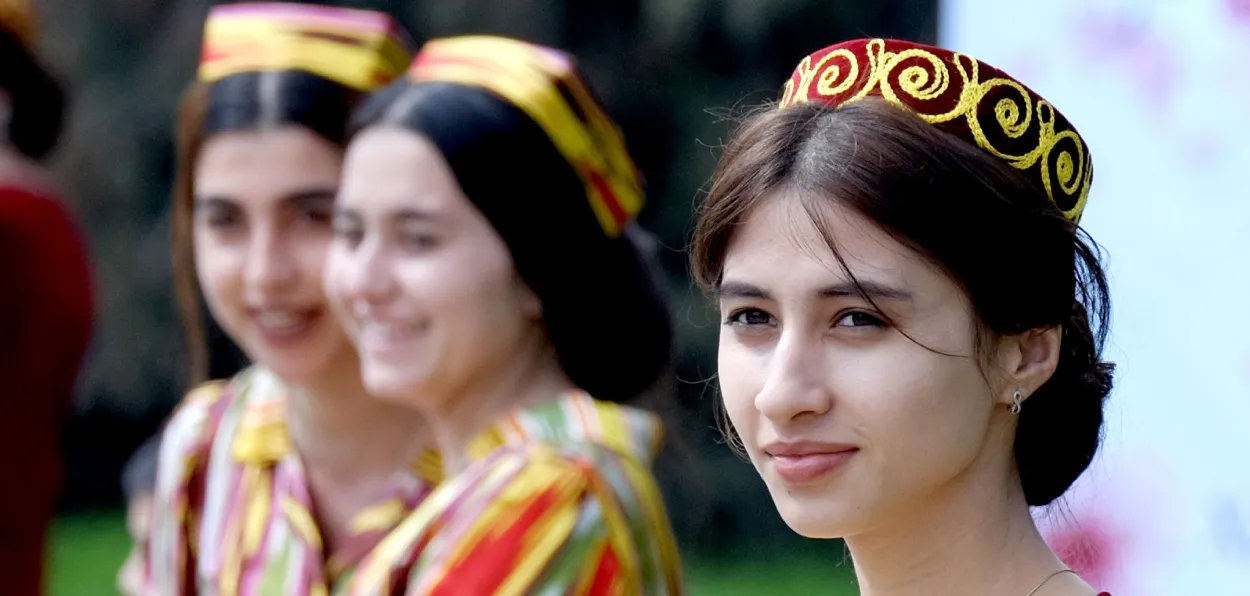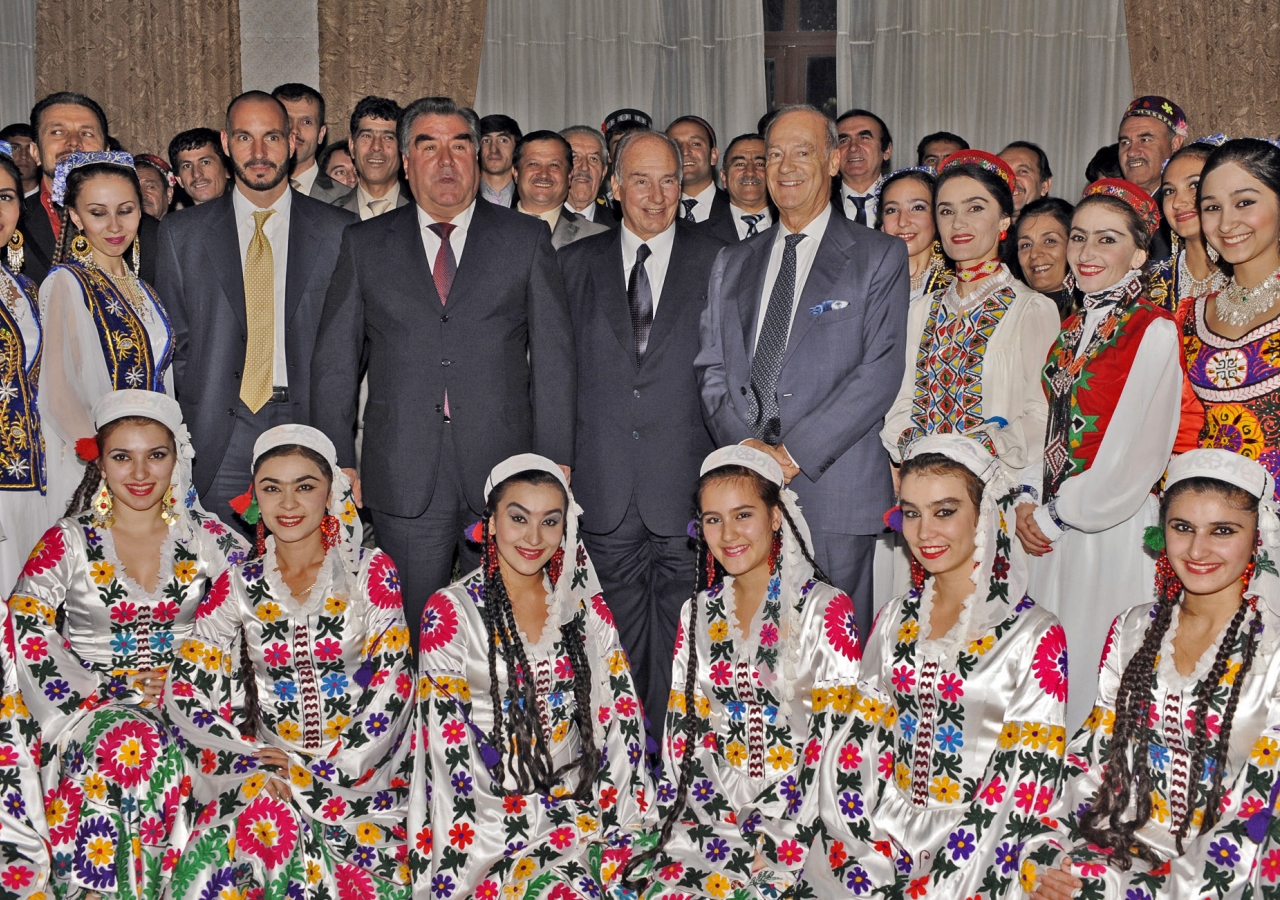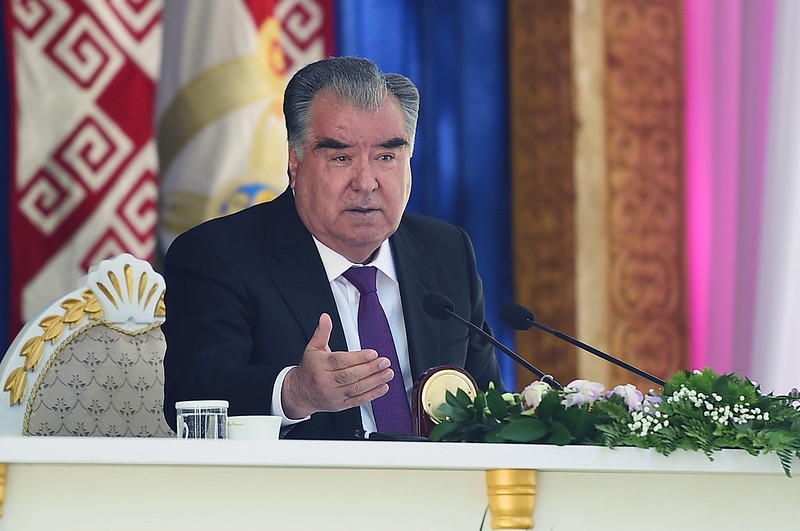
 Aditi Bhaduri
Aditi Bhaduri
On 20th June media in Tajikistan reported that President Emomali Rahmon signed legislation "On Regulating Celebrations and Ceremonies ", and "On Accountability for the Education and upbringing of the Child". These are about the protection of national cultural values, on prevention of superstition and fanaticism, and extravagance in holding ceremonies and rituals, for increasing spirituality of the Tajik nation, as well as the protection of rights and freedom of the child, it's education and upbringing in the spirit of humanism and patriotism, the respect of national and humanitarian values."
Behind The News
The changes in these laws were endorsed at the 18th session of the upper chamber of the Tajik parliament, on 19th June. The role of teachers, educational institutions, social committees, and official law enforcement agencies in the education and upbringing of children has been strengthened. The law on Celebrations and Ceremonies now stipulates the ban on "eidgardak" (celebrations of the two Muslim festivals of Eid), and the wearing of "foreign clothing". foreign clothing implies the "hijab" - the head covering worn by Muslim women.
The lower chamber of the Tajik parliament has endorsed the legislation. The violation of these laws will result in fines of a substantial sum. Sources inside Tajikistan told this author that beards may also soon be banned.
Given that Tajikistan is a Sunni Muslim country where 90 percent of the population is religious, this has caused both surprise and discussions.
However, putting the Tajik government’s decrees in a regional and global context will shed light on it.
 President Emomali Rahmon (wearing red tie), artists welcoming Aga Khan also called Mawlana Hazar Imam
President Emomali Rahmon (wearing red tie), artists welcoming Aga Khan also called Mawlana Hazar Imam
Two major terrorist attacks this year - in Iran and Russia, killing at least four hundred people, were the handiwork of Tajik nationals owning allegiance to the Islamic State-Khorasan Province (ISIS-KP). More recently, Tajik authorities rounded up a number of its citizens and took them in preventing custody, on allegations of plotting a terrorist attack inside the country.
The ISIS-KP has set up roots in Afghanistan and the region Tajikistan is the only country that has not established any connection with the Taliban, batting instead for an inclusive government with Tajik representation. Tajikistan also supports the National Resistance Front of Panjshir, the current avatar of the earlier Northern Alliance. (At least 45 percent of the Afghan population is Tajik, with linguistic and cultural affinity with Tajikistan).
Tajikistan shares the longest border with Afghanistan measuring 1357 km. What happens in Afghanistan does not remain in Afghanistan but spills over into Tajik territory and vice versa. The Afghan jihad was most viciously felt by Dushanbe compared to all other neighbours of Afghanistan in Central Asia. Religious radicalism, jihadism, narco-trafficking, secessionism, and a brutal and protracted civil war -- Tajikistan faced all of this as direct fallout of the Afghan jihad.
Soon after it emerged as a sovereign state from the debris of the erstwhile USSR, Tajik authorities - secular in the Soviet-style - fought a long embittered civil war with the Islamist opposition - the Islamic Renaissance Party. Hundreds of Tajiks had then fled to Afghanistan and had found shelter, going on to join the Taliban. Tajik nationals founded the Tajik Jamaat Ansarullah which later actively supported the Taliban to dislodge the Kabul-based government during 2010-2021.
Tajik leaders, who all came up during the Soviet-era, aim to keep Tajikistan strictly secular. Having tasted blood born of newfound religiosity, their leaders brook no tolerance for attempts by groups or countries to spread theocracy. It has not been happy with the religious fundamentalist Taliban ensconced across the border.
Men and women doing Yoga in Tajikistan (Source ICCR)
While Tajik authorities had battled religiously motivated secessionism, in 2022 the ISIS-KP claimed responsibility for an attack inside its southern border province of Gorno Badakhshan Autonomous Province. This is the region that had declared itself independent of Tajikistan. The civil war itself was a by-product of the Afghan jihad. The specter of a repetition haunts the Tajik security forces.
Besides, Tajik nationals have also been arrested in European cities, and recently in the US, on allegations of plotting to carry out terrorist activities while swearing allegiance to the ISIS-KP.
The Tajik authorities are therefore confronted with an ever-increasing problem of religion-based terrorism and extremism and attempt to overthrow the secular government and establish a caliphate-like rule.
Tajikistan, of course, is not alone in this. With the IS8S-KP now based in Afghanistan, all countries in the region have been its targets, including for recruitment. This includes Uzbekistan, Kazakhstan, and Kyrgyzstan. All these countries had seen large numbers of its citizens, including entire families travel to join ISIS when it arose and conquered swathes of territory in Iraq and Syria. According to Kremlin estimates in 2015, 5,000 to 7,000 recruits from Central Asia and Russia were fighting alongside ISIS.
Resource-rich but landlocked Tajikistan with a weak economy became a particular target for recruitment as many Tajiks had to go to other countries to look for employment, where they were recruited in ISIS. Former police commander of Tajikistan Colonel Gulmurod Khalimov became ISIS ‘Minister of War’ in 2016.
After the defeat of ISIS there, many of them were repatriated and subjected to extensive deradicalization and rehabilitation programs. However, the nightmare for the authorities did not end, as ISIS-KP, operating now just across the border instead of miles away in Syria or Iraq has thrown it a new challenge.
 President of Tajikistan Emomali Rahmon
President of Tajikistan Emomali Rahmon
Across the region there is now a focus on "national" values rather than "Islamic" ones. While Islam is important, in terms of faith and piety, authorities in the Central Asian states are trying to draw people's attention to the differentiation between "faith" and "traditions", or between the 'spiritual" and "practical". Thus, while praying is fine, clothing and celebrations should follow age-old local practices.
Last year, for instance, the Grand Mufti of Uzbekistan Nuruddin Kholiknazarov, pronounced that Islam does not have a strict dress code. "We have overdone the culture of wearing (religious) clothing. An opinion has been formed that Islam implies wearing certain clothes and a certain appearance. There is a rule left to us by our Prophet. Islam does not have a specific form, it is impossible: it is not a religion of one nation, it is not a religion of one climate,” the mufti explained.
This was to stress the "national" identity rather than an "Islamic " one to blunt the attraction of "pan-Islamism", to foil terrorism and violent extremism underpinned by radical religious ideas, and ensure national harmony and security, so that people would owe allegiance to their native society and polity, and not to some obscure personality living in a foreign land miles away, promising them a paradise that no one amongst the living had yet witnessed.
ALSO READ: Moscow terror attacks spotlight the role of Tajik nationals in ISIS
Thus, with its new legislation, Tajik authorities have embarked on a bold and audacious journey.
The author writes about Central Asia and West Asia
